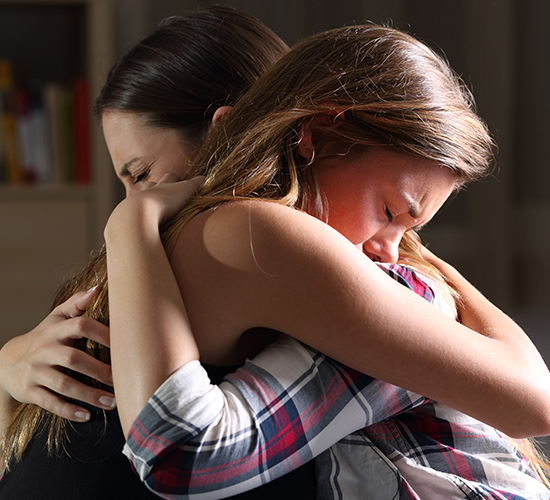The Emotional Challenges Of Cervical Cancer

A cervical cancer diagnosis can cause a great deal of emotional upheaval in the life of the affected individual. One could experience a range of feelings such as being numb, frustrated, lost, and angry, to feeling resentful, frightened and confused. At times, one might be positive and develop a strong determination to cope with the disease, the next moment she may feel sad and worn out.
Many questions arise in the mind of the person diagnosed with cervical cancer like – Will I survive? Why did cancer happen to me? Will I be able to get back to life? Besides this, most women worry about the impact cancer will have on the relationship with their spouse, and children. Loss of fertility and onset of early menopause during childbearing age are also some of the areas many find it difficult to come terms with.
While experiencing this sort of emotional fallout is natural, it can eventually lead to deterioration of the quality of life and could affect compliance with the treatment as well. Here we discuss a few ways you can cope up with the emotional challenges of cervical cancer[1].
How to Restore Emotional Wellness
- Think About The Future
Use the treatment period to gain a new perspective on life. Determine how you will improve your health and your life. Plan for your future, it could be taking up a hobby, starting a blog to spread awareness about cervical cancer, learning to swim, anything. You will start cherishing little moments of life and soon start looking at the world in a different light.
- Let Out Your Emotions
Suppressing the emotions can do no good to your mental and physical health. Let them out by talking to your family members, or friends. Let them know how you feel – awful, scared, hopeless, confused…Sharing your emotions with people around you is not a sign of weakness. In fact, it will make you feel better.
- Gain Knowledge
While doctors and nurses will help you with the information, you need to know more about cervical cancer, try to keep yourself updated by reading journals, websites, new researches etc. online. This way, you will not just be more able to cope up with emotional challenges of cervical cancer but also make informed decisions about your diet, treatment etc.
- Exercise Regularly
Performing regular exercises can enhance your physical as well as mental health. During exercise, your body releases a hormone called Endorphin, which makes you feel good and happy. Staying active can thus help you handle stressful situations, reduce anxiety, cut out exhaustion, and improve your stamina.
- Seek Support[2]
If you feel drained out emotionally, turn to local cancer support groups, family or friends. They will give encouragement, practical and emotional support to you. Joining a support group of women, whom you can relate to, who have been there and survived it all, will help you gain inner strength to cope with the disease.
- Counselling[2]
Seeking counselling or seeing an oncology psychologist during diagnosis, treatment and completion of therapy can help through the emotional times. They will counsel you, listen to you and suggest ways to manage the emotional challenges of cervical cancer.
Cervical cancer can bring many emotional challenges. But by finding ways to deal with those challenges, you will better able to comply with the treatment, manage the cervical cancer and live a better quality life.
References:
1. Coping With Cervical Cancer. Available from https://www.cancercare.org/publications/241-coping_with_cervical_cancer Accessed on [10th February, 2020]
2. About your emotions and cancer. Available from https://www.cancerresearchuk.org/about-cancer/coping/emotionally/emotions-and-cancer Accessed on [10th February, 2020]